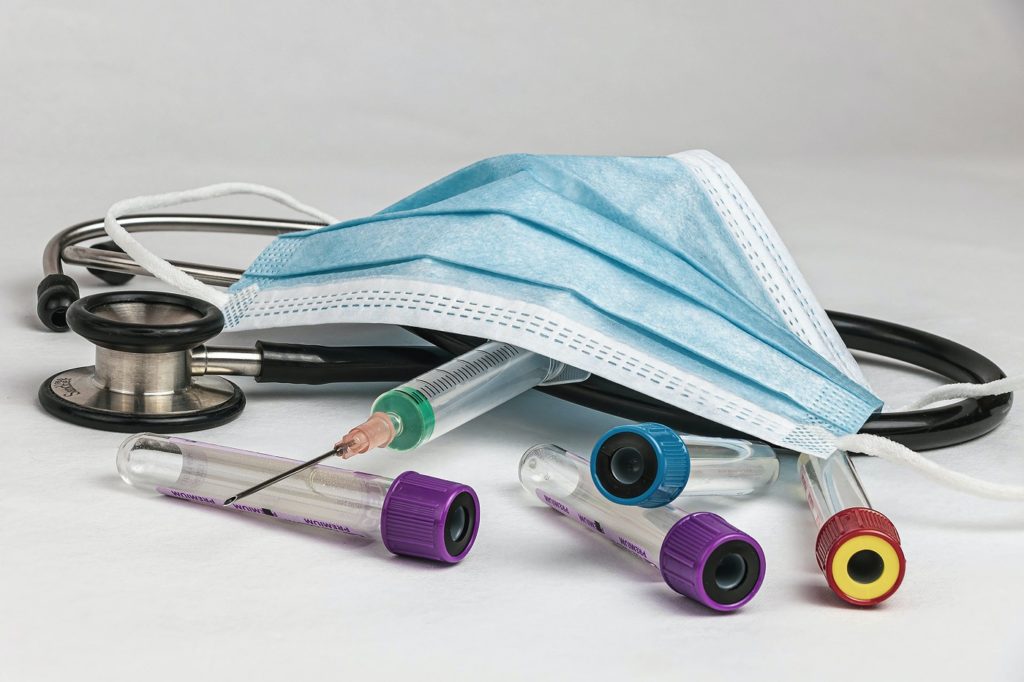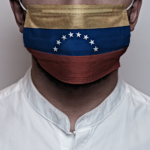On November 9, 2020, pharmaceutical giant Pfizer and biotech company and cancer treatment specialist BioNTech stunned the world with the announcement that a “vaccine candidate was found to be more than 90% effective in preventing COVID-19 in participants without evidence of prior SARS-CoV-2 infection in the first interim efficacy analysis.” The 90 percent success rate far exceeded experts’ hopes of a 50–70 percent effective rate and promised ultimately a potential curb on the global pandemic that has crippled the world’s economy.
So, with millions of doses of the Pfizer-BioNTech vaccine on the verge of distribution to American citizens and people worldwide—immediately following FDA emergency approval—what do we know of the vaccine’s ethical considerations, given controversies with some vaccines over the use of cell lines from aborted babies? In brief, the Pfizer-BioNTech vaccine was not developed or produced using any tissue from an aborted child, though it did make use of a biological assessment tool that relies on a cell line (HEK-293) derived from an aborted baby in 1972. Ethical considerations including loving our neighbor, the unavailability of ethical alternatives, and distance in participation and time from the original unethical act make this vaccine a candidate for morally licit use. Let us explain.
Key Principles Can Guide Sound Decision-Making
In a recent Public Discourse essay, Fr. Tadeusz Pacholczyk examined the ethics and seemingly abortion-endorsing effect of the U.S. government’s “channeling of hundreds of millions of dollars of taxpayer funds directly into the development of COVID-19 vaccines that utilize abortion-derived cells for their production.” The apparent concession to abortion-implicated vaccines came at the same time that the U.S. Department of Health and Human Services—based on recommendations by an ethics advisory board on which Pacholczyk served—was putting the kibosh on government funding of fetal tissue research that relies on cell lines from aborted babies.
Start your day with Public Discourse
Sign up and get our daily essays sent straight to your inbox.Pacholczyk argued that, while “individual end users have no direct causal connection to those wrongful decisions made previously by others, . . . none of us should have to take drugs that have any connection, even a very remote one, to abortion.”
In “Research Using Cells of Illicit Origin and Vaccines from Fetal Tissue,” Christopher Tollefsen anticipated pro-lifers’ dilemma of potential complicity in using a COVID-19 vaccine tied to abortion. He argued that “it is not cooperation [with evil] strictly speaking; the abortions have already been performed. Nor does any individual pro-lifer’s decision to vaccinate contribute in any meaningful way either to any particular future abortion, or to the work of researchers who insist on using fetal tissue.”
The Administration’s Operation Warp Speed has funded six vaccine candidates, all of which are associated, though in differing ways as explained below, with cell lines from an aborted baby. The Pfizer-BioNTech vaccine is associated with the HEK-293 cell line, derived from an abortion nearly half a century ago.
We agree with Pacholczyk on the need for government to provide clearly licit options, and we have encouraged the administration to develop morally uncontroversial drugs rather than those tainted by any abortion connection. We do not see quite as clear a definitive divorce of the end user’s acceptance from the drug developer’s actions as Pacholczyk and Tollefsen suggest. As to future harm, we are convinced of the need to clarify the difference between ethical concession and ethical acceptance, in part to avoid emboldening future abortion-implicated research and development.
While agreeing that end users have no direct causal connection to others’ illicit acts, that fact alone is not in our opinion sufficient for arriving at a clear-conscience decision to receive this specific vaccine. Such a conclusion requires weighing relative harms and benefits.
While agreeing that end users have no direct causal connection to others’ illicit acts, that fact alone is not in our opinion sufficient for arriving at a clear-conscience decision to receive this specific vaccine. Such a conclusion requires weighing relative harms and benefits.
Weighing an indirect user connection concern alongside other ethical considerations is required in the case of the Pfizer-BioNTech vaccine. Several mitigating principles can help assuage the concerns of conscientious end users of drugs that have some connection to abortion: the distance in time from the original abortion to the present use of the drug and the lack of availability of any ethical alternatives.
Ethical Analysis of the Pfizer-BioNTech Vaccine
The 20,000-member Christian Medical Association has approved an ethics statement that can help guide individuals’ analyses of immunizations and the potential for moral complicity with evil:
- “Using technology developed from tissue of an intentionally aborted fetus, but without continuing the cell line from that fetus, may be morally acceptable.
- “Continued use of a cell line developed from an intentionally aborted fetus poses moral questions and must be decided as a matter of conscience, weighing the clear moral obligation to protect the health of our families and society against the risk of complicity with evil.
- “Using a vaccine that requires the continued destruction of human life is morally unacceptable.”
In a recent virtual meeting between faith leaders and government officials leading the charge against the pandemic, one of us (Jonathan) put the question this way to Dr. Francis Collins, the director of the National Institutes of Health: “Some have expressed conscience concerns about vaccines that rely on an abortion-derived cell line for production, such as the AstraZeneca–University of Oxford vaccine and the Janssen Research–Johnson & Johnson vaccine. What are your thoughts on these concerns, and how confident are you that at least one vaccine that does not rely on an abortion-derived cell line for production will be available?”
While the off-the-record meeting precludes direct quotes, we can say Dr. Collins respectfully addressed this concern, highlighting the length of time since the cell lines used in the various Operation Warp Speed vaccines were developed from abortions in 1972 (HEK293) and 1985 (PER.C6). He referenced the administration’s recent decision not to use NIH funds for certain fetal tissue research. Dr. Collins also invoked the ethical analysis that the use of such a vaccine may be permissible in the absence of any ethical alternative, while suggesting that the odds looked good that at least one vaccine of the six U.S.-funded candidates would satisfy pro-life concerns.
Is the Pfizer-BioNTech vaccine just such an ethically acceptable vaccine? The answer depends on careful analysis of the vaccine’s implications with respect to abortion. Each of the six COVID-19 vaccine candidates funded under the administration’s Operation Warp Speed has or is presumed to have had some interaction with a cell line derived from an abortion performed decades earlier. (One company, Sanofi Pasteur, has not yet published documentation that would allow definitive confirmation of abortion-related interaction. The company did recently discontinue its Poliovax polio vaccine, which used the aborted fetal cell line MRC-5).
The absence of any completely untainted ethical choice triggers the ethical principle that in such cases, an individual may in good conscience receive a vaccine in spite of the abortion connection when the good of protecting oneself and others from harm arising from vaccination outweighs the harm arising from the abortion connection. In the case of potentially six vaccines becoming available, we want to choose the vaccine offering the least ethically problematic option.
Deciding which COVID-19 vaccine poses the least ethical concerns hinges in part on the implication of abortion in (a) the initial design of the vaccine, (b) the confirmatory testing of the vaccine, and (c) the ongoing production of the vaccine. Vaccines that continue to use the abortion-derived cell line in ongoing production pose the most obvious ethical barrier to use by pro-life individuals. This category includes vaccines by AstraZeneca–University of Oxford and by Janssen–Johnson & Johnson. In fact, these vaccines employ abortion-related cell lines in all three stages—design, confirmation, and production.
While still ethically concerning, the fact that this remote and limited interaction with abortion does not involve the continuing use of an aborted fetal cell line makes it less ethically problematic compared to its competitors that use these cell lines for ongoing vaccine production.
The Pfizer-BioNTech vaccine uses a new vaccination platform that injects messenger RNA (mRNA) into muscle cells of the subject. Once incorporated into the cells, they begin to manufacture and release the same spike proteins found on the surface of the SARS-CoV-2 virus. The presence of these spike proteins elicits an immune response within the individual, introducing a new protection from the virus.
Unlike the aforementioned COVID-19 vaccine candidates that rely on abortion-derived cells for their ongoing production, the Pfizer-BioNTech vaccine used the HEK-293 cell line from a 1972 abortion only to confirm that messenger RNA was properly coding for the spike protein of the SARS-CoV-2 virus. While still ethically disconcerting, the fact that this remote and limited interaction with abortion does not involve the continuing use of an aborted fetal cell line makes it less ethically problematic compared to its competitors than use these cell lines for ongoing vaccine production.
Tollefsen offered perhaps the most compelling and easily appreciated consideration for use of an abortion-tainted vaccine: “Refusal to vaccinate oneself and one’s children will not only put oneself and one’s family at risk; it will put others, especially the vulnerable elderly and those suffering from certain chronic illnesses, at significant risk as well.” This consideration goes to the heart of Christian ethics in a way that virtually every believer understands: Vaccinating yourself and those who depend on you is an important component of following the command to love thy neighbor.
What’s Next?
Assuming continued positive results, as soon as the study produces a total of 164 confirmed cases of COVID-19 to help cement evidence of the vaccine’s effectiveness, Pfizer-BioNTech can file for an Emergency Use Authorization through the FDA. Pfizer also will have to demonstrate that at least 50 percent of study participants did not experience significant side effects for at least two months after the second of their two injections—a threshold expected to be crossed in the third week of November.
Questions remaining to be confirmed include how well the vaccine prevents severe cases of COVID-19, whether the vaccine prevents transmission from asymptomatic vaccine recipients to non-recipients, and how long the vaccine provides protection. Notably, the vaccine requires two doses, meaning that patient follow-up will have significant impact on effectiveness. The fact that the vaccine requires storage at sub-zero temperatures poses additional but not insurmountable distribution challenges.
Once approved, the next ethical decision will be deciding who gets the vaccine first, given that the initial production will not be enough to vaccinate everyone. The Trump administration has emphasized a priority of vaccinating first responders and vulnerable populations including the elderly. Presumed President-elect Joe Biden is assembling a new COVID-19 task force that includes Obamacare architect Dr. Ezekiel Emanuel, who in an interview on the Biden administration’s strategy with respect to the virus asserted, “You’re going to see a very different approach here.”
Besides his staunch opposition to conscience rights in healthcare, Emanuel opined in an essay entitled “Why I Hope to Die at 75” that “living too long is also a loss. It renders many of us, if not disabled, then faltering and declining, a state that may not be worse than death but is nonetheless deprived.” Should Emanuel’s views on aging prevail in the government’s determination of vaccine priority, our challenge may not be simply deciding whether or not the vaccine is ethically permissible but also whether government officials consider our lives worth preserving.
In contrast to Dr. Emanuel, we place high value on the lives of the elderly, and actually find that consideration a compelling factor in considering whether or not to receive a vaccine with an ethical profile such as the Pfizer-BioNTech vaccine.
We also recognize that each individual must weigh ethical considerations before making a vaccine decision. When we examine the Pfizer-BioNTech vaccine in light of ethical principles of (a) loving our neighbor by protecting them through our own vaccination, (b) the distance in time from an abortion connection, and (c) the fact that the vaccine does not continue to use cell lines derived from an abortion, we find these factors considerable in mitigating the ethical concerns and opening the door to receiving the vaccine in good conscience.














